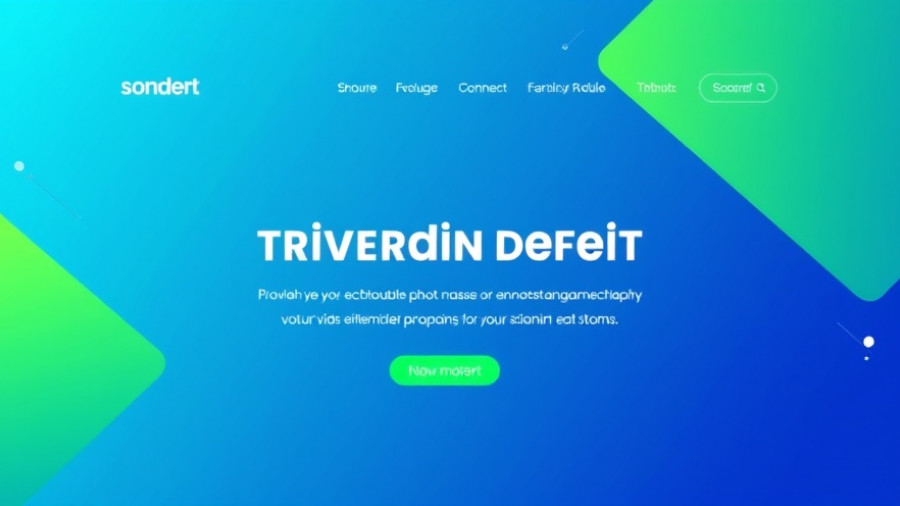
PayPal-Perplexity Integration: A Game Changer for Affiliate Programs
As the digital retail landscape evolves at lightning speed, affiliate program managers must adapt quickly to maintain their competitive edge. The recent integration of PayPal’s instant checkout feature within Perplexity signals a substantial shift in how consumers engage with e-commerce. This integration, launching just before Black Friday, empowers Perplexity to function not merely as a research tool but a dynamic storefront, offering immediate implications for affiliate strategies during the most lucrative shopping season of the year.
Understanding the Strategic Timing
The launch comes with impeccable timing, as PayPal is offering a hefty 50% cashback (up to $50) until December 1st, perfectly catering to today’s savvy and price-sensitive shoppers. This strategic positioning is not just random; it capitalizes on high traffic periods when consumer spending peaks, allowing PayPal to garner substantial transaction volume at a time when shoppers are actively seeking deals.
The Shift to Closed-Loop Transactions
For affiliate marketers who traditionally direct traffic to merchant sites, this closed-loop environment presents significant challenges. With the integration reminiscent of the earlier ChatGPT partnership, complete transactions within AI platforms like Perplexity complicate the attribution process, making it harder for affiliates to track and recognize their contributions. Affiliates must quickly adjust to this new ecosystem where consumer purchases occur seamlessly within the AI’s interface.
Effects on Common Types of Affiliate Programs
Different types of affiliate programs face unique challenges due to this integration. Content affiliates, who focus on product reviews and comparison sites, may suffer the most immediate repercussions. The allure of purchasing directly within Perplexity undermines their traditional role of mediating consumer traffic to external merchant sites. Moreover, analytics show that AI-driven traffic currently results in less conversion compared to traditional affiliate links, yet the optimization of user experiences over time could shift these dynamics.
Coupon and cashback affiliates are also confronted with direct competition from PayPal’s promotions. The integration streamlines the application of discounts within the AI system, which removes the former friction associated with external coupon sites. This evolution mirrors recent controversies around incentive tools like the Honey browser extension, highlighting the growing complexities of attribution in the age of automated discounts.
Reassessing Paid Traffic Strategies
For performance marketing affiliates heavily invested in paid traffic campaigns, recalibrating acquisition costs is paramount. If Perplexity captures a significant volume of transactions during peak shopping periods—just as traditional sellers ramp up bid prices for Black Friday keywords—conversion rates may plummet as customer preferences shift. Affiliates must then reconsider their ROI calculations to align with this evolving commercial landscape.
Future-Proofing Affiliate Relationships
A strategic advantage lies with affiliates who maintain robust partnerships with merchants, positioning them favorably to negotiate attribution solutions as PayPal expands its suite of AI commerce tools. The ability to discuss closed-loop transactions with recognized partners can provide a hedge against disruption. Conversely, anonymous network affiliates risk being sidelined when innovations emerge.
Actionable Insights for Affiliates
To prepare for an impactful Black Friday, affiliate program managers should:
- Audit Partner Relationships: Identify which affiliates will be directly affected by the shift in traffic patterns, adjusting strategies accordingly.
- Enhance Communication: Clear and proactive dialogue with partners over how transactions through Perplexity will be recognized is essential.
- Diversify Traffic Sources: Strengthening email lists and social media channels can provide robust avenues for traffic that are less susceptible to the changes brought by AI integrations.
- Optimize for Mobile: Recognizing that over 55% of shoppers will engage through mobile devices, ensuring a seamless mobile experience is mandatory to capture conversions.
- Focus on Content for AI Visibility: Programs should enhance product information architecture to boost discoverability within AI-recommended searches.
What’s Next in the Affiliate Marketing Space?
The PayPal and Perplexity integration is a clear harbinger of the type of adaptability required of affiliate marketers moving forward. As the landscape becomes increasingly integrated with AI technology, those who observe patterns, diversify their approach, and foster strong relationships with merchants will likely find success. Just as the industry has navigated challenges from cookie restrictions to the evolving attribution models, the onset of agentic commerce demands similar strategic foresight and agility.
Ready to diversify your affiliate marketing strategy? Stay informed with the latest trends through our industry insights.
 Add Row
Add Row  Add
Add 




Write A Comment